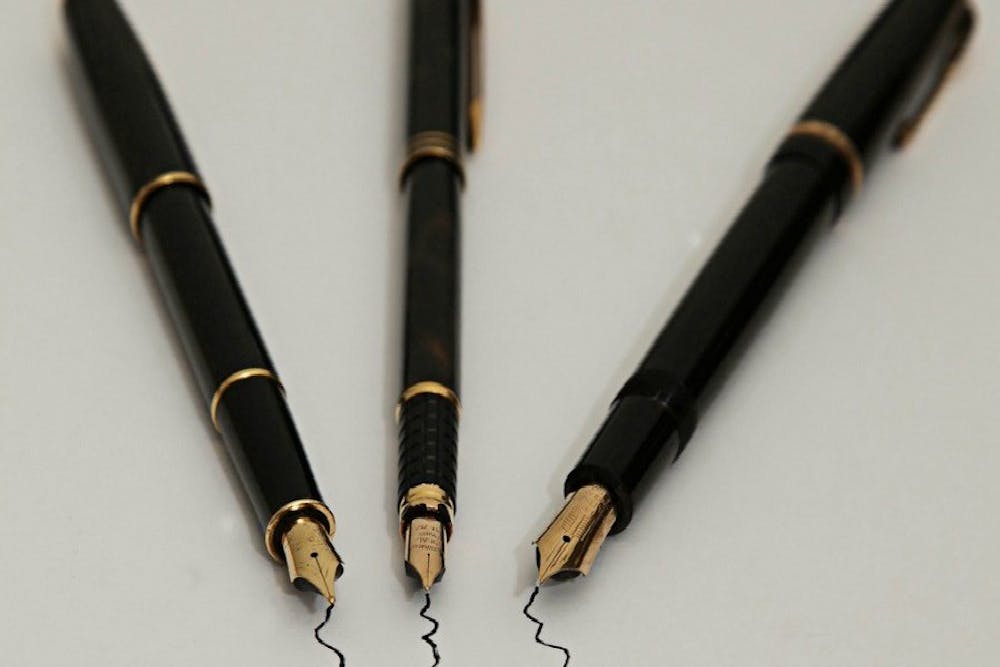Maddie's Matters
Maddie LaPlante-Dube, Columnist
The phrase "be a man" has gotten a lot more complicated over the course of the 20th and 21st centuries, and people - most notably, men - are finally talking about its implications. I am so proud of the Miami Masculinities Committee (MMC) for hosting their first Men of Miami panel to discuss masculinity on Tuesday, Feb. 9.
When I finished reading Alison Perelman's coverage of the event on The Miami Student's website, I happened to scroll to the comment section. There was one comment.
Written by a man, it quoted the article, reading "'Ultimately, I would like masculinity to be a positive and productive part of our environment.' - Least Masculine Guy Ever."
There was one unanswered reply: "How?"
How, indeed.
There has been a lot of talk about male fragility in the past year, and with women's movements getting stronger as the 21st century rolls on, a critical eye has turned to the socially-constructed concept of masculinity and the effect it is having on men and the way they view themselves.
The MMC's panel was held at an especially important time, as antifeminist blogger known most commonly as Roosh V recently made headlines by organizing neo-masculinist meetings in 43 countries. Roosh V has argued famously on his blog "Return of Kings" that "we make the violent taking of a woman not punishable by law when done off public grounds."
The backlash from women's rights groups (including a totally-awesome all-female boxing club) prompted him to cancel the talks, disappointing misogynists everywhere.
Having panels like the one the MMC hosted this week are vital, not only in that they provide the kind of knowledge that Miami students really need - especially those in Greek life who are so bombarded by ideas of who they need to be in order to fit into a particular, gendered group - but also, on a larger scale, in that they can help us reshape masculinity as a whole.
Guys, gender is a social construct. In November of 2015, New Scientist published an article explaining that scientists have discovered that, structurally speaking, there is no such thing as a "male" or "female" brain.
Enjoy what you're reading?
Signup for our newsletter
Rather, the vast majority of individuals' brains are a mix of what were previously thought to be exclusively "male" and "female" characteristics. This gives yet more legitimacy to the idea that gender, rather than being binary, lies on a vast spectrum.
Thought women were complicated? Well, men are, too. We just traditionally haven't allowed them to be.
"It feels as if, as the traditional ideals of the 20th-century man - strong, stoic, repressed - begin to fade away, nothing has stepped in to replace them," says Max Olesker in The Guardian. "In today's pop-culture landscape, there's no single archetypal ideal that we're supposed to emulate."
This means there is an opportunity for a do-over. Gone are the days when men were required to be the breadwinners and ride blue bikes instead of pink ones. The toxicity of masculinity can be seen everywhere: according to the American Foundation for Suicide Prevention, men die by suicide 3.5 times more often than women. According to research done by filmmaker Jennifer Seibel Newsom, American boys are more likely to fail out, binge-drink and be diagnosed with behavioural disorders.
Because they are not allowed to fully express their emotions socially, boys become, as Newsom puts it, "corpses of human beings."
This is such an important concept to keep in mind. Our unique emotional depth is what has helped human beings understand, connect, and communicate properly. Men and boys have traditionally been left out of conversations that might encourage them to speak up in personal ways, and that can be really damaging.
Yes, men around the world still hold more positions of power than women. But creating an equal society and shifting power structures must come from efforts on both sides.
Reinventing the way we see women coincides with reinventing the way we see men. I applaud the MMC, the Women's Center, and Masculinities at Miami Student Organization for putting on this panel.
Please, please, please keep the conversation going.




